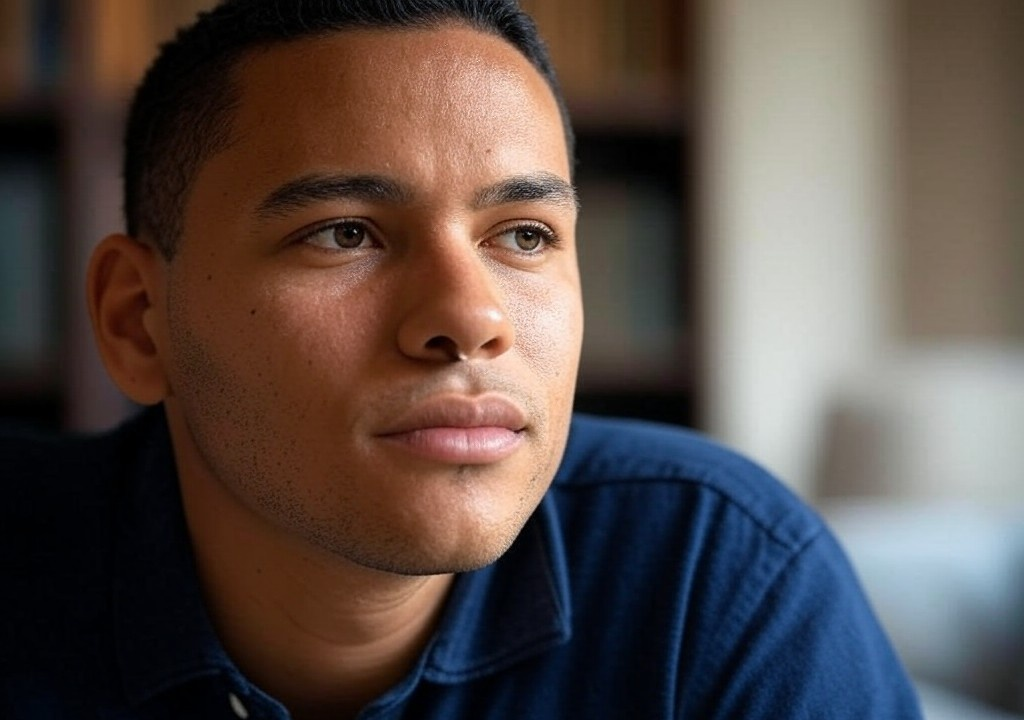The Fear I Conquered
The Fear That (Almost) Made Me Cancel a First Date
Let me start with a confession: for most of my adult life, I lived with a deeply irrational—but very real—fear of rejection. I don’t mean the usual nervousness about someone not texting back or a crush not being into you. I’m talking about the kind of fear that makes your heart race at the thought of putting yourself out there, unguarded and exposed, because what if that person looks at you and says, “No thanks”?
It wasn’t always like this. Growing up, rejection was just a normal part of life. As a kid in Miami, my Cuban grandparents didn’t exactly soft-pedal constructive criticism. If I sang off-key, they told me. If my report card wasn’t stellar, I got a lecture. But they always made sure I knew I was loved—and what’s rejection when your abuelita’s fried plantains are waiting for you? Things got trickier, though, when I graduated from Saturday morning cartoons into the wild world of relationships.
The truth is, I didn’t know how to handle the possibility of someone saying, “No thanks,” when I expressed interest. So, I avoided situations where that might happen. If unreciprocated vulnerability was a landmine, I did everything I could to sidestep it. Sure, I had flings here and there, but I never really allowed myself to take that leap where something—or someone—mattered. And if you couldn’t tell already, this specific fear didn’t do wonders for my love life.
When Avoidance Became My Side Hustle
In college, I mastered the art of dodging rejection. Did I like someone? Cool. I’d make them laugh, make them feel good, but never let the flirting cross into territory where my intentions were undeniably clear. It was like I was running the friendliest, platonic Olympics of all time. And when I did manage to scrape together some romantic courage, it often landed in safe (read: boring) places. Relationships where I knew I wouldn’t risk heartbreak.
Then came Chicago. Much as I loved my Miami cocoon—guava pastries, domino tables, and car alarms constantly announcing themselves—I needed the Midwest winters to slap me into adulthood. My writing fellowship put me in a space where I was surrounded by people creatively exposing themselves every day. It was inspiring and terrifying. Watching my peers share raw and vulnerable stories made me realize I was still hiding. Not just in my fiction but in my personal life.
That’s when the light bulb went off: this fear wasn’t saving me. It was holding me hostage.
The Turning Point: A Perfectly Awkward Date
It started because of empanadas. Hear me out. I’d been talking to someone charming and outrageously cute but also wildly out of my league—or so I told myself. She had a laugh that lit up every text message, tons of good banter, and an effortless confidence I envied. One day, as we exchanged pleasantries about Cuban food (a topic I am grossly overqualified to discuss), she casually mentioned a new empanada shop she was dying to try.
Without thinking, I blurted, “Let’s go!”
And then it hit me: I had asked her out on a date—a real date. No undefined hangout, no “group thing” buffer, just me, her, and my sweaty palms. I spent three sleepless nights waiting for her to text back. Spoiler alert: She said yes.
Here’s the real kicker, though. That first date? A complete and total disaster.
I arrived 15 minutes late, the empanada shop was closed, and to cap it all off, I tripped over my own shoe walking alongside her. As I glanced up from my metaphorical rock bottom, expecting her to run away screaming, she instead smiled—and laughed. Not at me, but in that warm, shared way that makes you feel human instead of just clumsy.
It wasn’t perfect, but it was real. And in that instant, I realized rejection wasn’t my biggest foe—it was my fear of being seen as anything less than perfect.
How I Worked Through It
Conquering my fear didn’t happen in one empanada-related disaster. It took effort. Here’s how I finally made peace with rejection, often in ways you wouldn’t expect:
1. I Romanced Reality
For a long time, rejection felt like a big screen moment. You know, the kind where the protagonist is crushed, and the violins swell dramatically? But life’s not a rom-com—it’s a more awkward, funnier blend of chaos. Once I learned to detach from the “grand tragedy” narrative I built in my mind, rejection felt a lot smaller. That person didn’t vibe with me? Cool. I’m still vibing with myself.
2. I Asked Myself: “What’s the Literal Worst That Could Happen?”
Spoiler: The answer is usually “not much.” If someone doesn’t vibe with you, you don’t get a neon sign above your head announcing your failure to the world. You just move on. Keeping the stakes in perspective helped deflate my anxiety.
3. I Started Practicing Honesty Everywhere—Not Just in Dating
When I started writing more openly about my cultural heritage and personal life, I noticed those same feelings of dread creeping in. What if people didn’t connect or, worse, judged me for it? The more I embraced vulnerability in one area, though, the more I could extend that same courage to romantic relationships. Turns out, courage is contagious.
4. I Let Go of the “Results” Obsession
I spent years thinking rejection defined me—like the “yes” or the “no” determined my worth. Trust me when I say this: it doesn’t. Putting yourself out there is the courageous part, not whether it works out. Once I started valuing my effort over the outcome, the sting of rejection faded.
The Beautiful Thing About Vulnerability
These days, rejection doesn’t terrify me the way it used to. That girl I went on the empanada date with? We’re not together. Things fizzled out eventually, but not once did it feel like a loss. She showed me what it felt like to be brave, and for that, I’ll always be grateful.
Lean into the discomfort. Say the things you’re scared to say. Trip over your shoes in front of someone new if you have to. And when rejection happens—because it will—know this: you’re still standing. You’re still growing. You’re still lovable, in all your imperfect, empanada-loving glory.
So, take that risk. Whatever you say or do, I promise, you’ll survive—and you might even thrive.




















